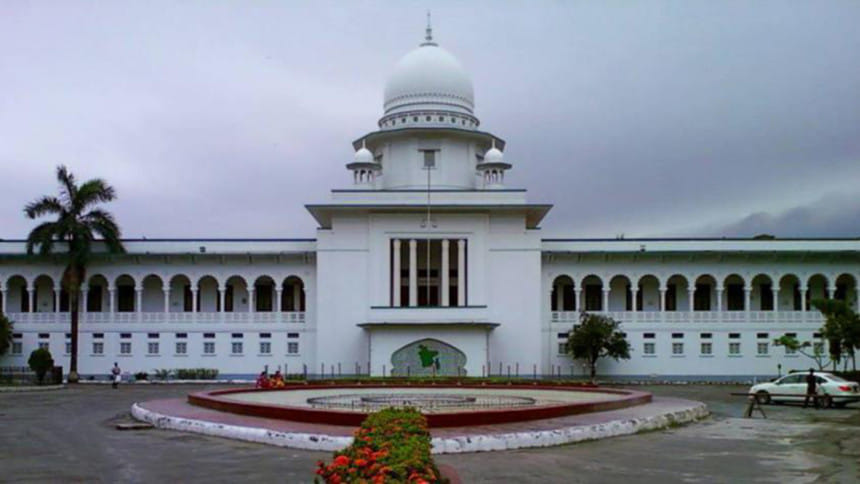Writ challenging Islam as state religion rejected

Islam retained the status of state religion with the High Court today rejecting a writ petition challenging the legality of a constitutional provision in this regard.
Fifteen distinguished citizens filed the writ petition with the HC in 1988 challenging the amendment that gave "Islam" the status of state religion.
The petitioners have no jurisdiction to move such a petition, the HC bench that binned the petition said while passing its ruling this afternoon.
The bench comprised of Justice Naima Haider, Justice Quazi Reza-Ul Hoque and Justice Md Ashraful Kamal.
Following the writ petition, the HC on June 11, 2011 issued a rule upon the government to explain why the part of the eighth amendment to the constitution that had made "Islam" state religion should not be declared illegal. It also invited 12 amici curiae to hear their opinions.
The amici curiae were Dr Kamal Hossain, TH Khan, Mahmudul Islam, M Amir-Ul Islam, Rafique-ul Huq, Dr M Zahir, Rokanunddin Mahmud, Ajmalul Hossain, Fida M Kamal, Yusuf Hossain Humayun, AFM Mejbahuddin and Abdul Matin Khasru. Later on, Dr M Zahir and Mahmudul Islam died.
The government did not respond to the June 11 rule.
On June 30, 2011, the parliament passed a bill on the constitution's 15th amendment retaining Islam's status as state religion. The amendment, however, restored "secularism" as one of the four fundamental principles of the state which had been omitted by a martial law regime after the 1975 bloody changeover.
Following an application filed by the writ petitioners, the HC in December 2011 issued a supplementary rule asking the government to explain why the part of the 15th amendment to the constitution that gave "Islam" the status of state religion should not be declared illegal.
The counsel said there was no scope to keep "Islam" as state religion after the Supreme Court had declared illegal the fifth amendment to the constitution and restored "secularism" in the constitution.
The government led by military ruler HM Ershad had inserted a section in the eighth amendment to the constitution making "Islam" state religion on June 9, 1988.
The writ petitioners were Begum Sufia Kamal, former chief justice Kemal Uddin Hossain, Khan Sarwar Murshid, Prof Kabir Chowdhury, Prof Dr Mosharraf Hossain, Maj Gen (retd) Chitta Ranjan Datta (Bir Uttam), Prof Serajul Islam Choudhury, Badaruddin Umar, journalist Faiz Ahmed, Dr Borhan Uddin Khan Jahangir, Prof Anisuzzaman, Justice Devesh Chandra Bhattacharjee, Justice KM Sobhan, Syed Istiaq Ahmed, and Kalim Sharafi.
Ten of them including Begum Sufia Kamal and Justice Kemal Uddin Hossain have already died, said the petitioner's lawyer Jaglul Haider Afric, adding that the petition was included in the hearing list of the three-member HC bench on February 29, as the chief justice recently assigned the bench for its hearing.
The lawyer, however, declined to say why the 1988 petition was heard for the first time in 2011 and why the petitioner's counsel applied to the chief justice last year so that the HC hears it now.

 For all latest news, follow The Daily Star's Google News channel.
For all latest news, follow The Daily Star's Google News channel. 



Comments